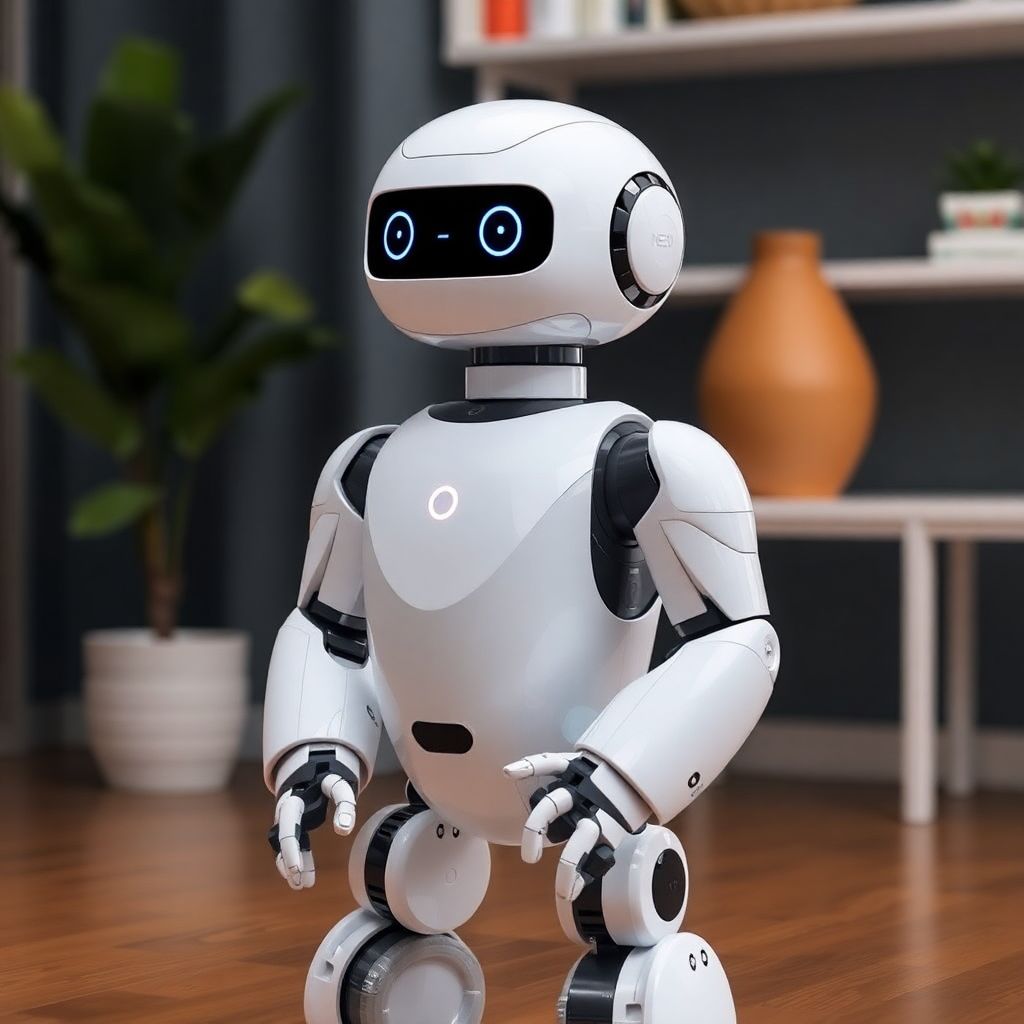The competition in the humanoid robotics industry is intensifying as Palo Alto-based company 1X introduces its latest innovation: NEO, a conversational home assistant robot. Designed to seamlessly integrate into domestic life, NEO combines advanced artificial intelligence with mobility and a human-like form, aiming to revolutionize the way people manage household tasks.
NEO is engineered to perform a wide range of home duties — from organizing schedules and managing smart home devices to providing companionship and even engaging in natural conversations. According to 1X, the robot is not only functional but also emotionally intelligent, designed to understand context and human behavior, which allows it to adapt to the individual needs of its users.
This launch comes at a pivotal moment in the robotics industry. As humanoid robots transition from experimental lab projects to commercially viable products, analysts predict the combined humanoid and service robot markets could surpass $400 billion within the next ten years. Factors driving this growth include rapid advancements in embodied AI, increasing demand for automation, and global labor shortages.
Companies like Tesla, Figure AI, and Agility Robotics are already exploring industrial applications for humanoid robots, deploying them in logistics, manufacturing, and warehouse environments. Unlike these firms, 1X is focusing on the home space — a more intimate and complex setting where trust, safety, and adaptability are critical for success. In this arena, NEO’s ability to communicate naturally and respond to nuanced human cues could offer a significant advantage.
The CEO of 1X emphasized that the development of NEO has been a decade-long journey fueled by a vision to create a truly helpful and safe household robot. The company highlighted its focus on ethical AI, ensuring that NEO not only performs well but also respects user privacy and autonomy.
What sets NEO apart is its conversational interface, powered by state-of-the-art natural language processing. This allows users to interact with the robot as they would with a human assistant — making requests, asking questions, or simply chatting. The system is also capable of learning from user interactions over time, becoming more intuitive and context-aware as it operates.
NEO’s mobility is another standout feature. Unlike stationary smart assistants, NEO can navigate around the home autonomously, using advanced sensors and computer vision to avoid obstacles and map out its environment. Whether it’s fetching items, reminding users of upcoming appointments, or checking on home security, NEO is built to be both helpful and unobtrusive.
In terms of design, 1X has opted for a non-threatening, minimalist aesthetic to promote user comfort. The robot’s smooth exterior, subtle facial expressions, and soft voice are all intended to enhance the feeling of approachability and trustworthiness. These elements are crucial in a domestic setting, where users must feel at ease with a machine that shares their living space.
NEO also integrates with various smart home ecosystems, allowing it to control lighting, temperature, appliances, and security systems. Through voice commands or app-based controls, users can delegate routine tasks to NEO, freeing up time for more meaningful activities.
The implications of NEO’s arrival go beyond just convenience. As populations age and the demand for caregiving rises, robots like NEO could play a vital role in supporting independent living for the elderly or people with disabilities. By providing 24/7 assistance without fatigue, such robots could alleviate pressure on caregivers and healthcare systems.
Looking ahead, 1X plans to continuously update NEO’s software with new capabilities, based on user feedback and evolving AI technologies. The company envisions a future where robots become integral members of the household — not just tools, but collaborators.
In addition, 1X is exploring possibilities for NEO to act as a platform for third-party developers. By opening up its operating system to external applications, the company aims to foster an ecosystem of features and services tailored to diverse home environments and cultural contexts.
As competition heats up in the humanoid robotics sector, the success of NEO will likely hinge on its real-world performance, user adoption, and the ability to scale production efficiently. With tech giants and startups alike investing heavily in this space, the next few years will be critical in determining which companies will lead the way in bringing humanoid robots into everyday life.
In summary, 1X’s unveiling of NEO marks a significant milestone in the evolution of personal robotics. By focusing on emotional intelligence, adaptability, and user-centered design, the company is positioning itself at the forefront of a rapidly expanding market. Whether NEO becomes a household name remains to be seen, but what’s clear is that the age of domestic humanoids is no longer science fiction — it’s arriving at our doorsteps.

